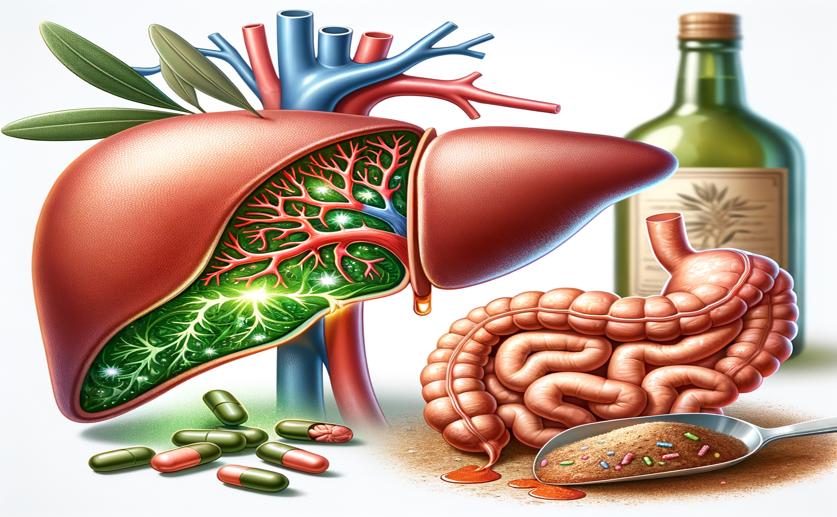
Maslinic Acid Eases Alcohol-Related Liver Damage and Balances Gut Bacteria
Greg Howard
6th June, 2024

Image Source: Natural Science News, 2024
Key Findings
- Researchers at Nanjing Forestry University found that maslinic acid (MA) from olives and hawthorn can reduce alcohol-induced liver injury
- MA helps by protecting the intestinal barrier, reducing gut permeability, and preventing harmful bacteria from entering the bloodstream
- MA also rebalances gut microbiota, decreasing harmful bacteria and increasing beneficial ones, which helps prevent liver damage
References
Main Study
1) Maslinic acid alleviates alcoholic liver injury in mice and regulates intestinal microbiota via the gut-liver axis.
Published 5th June, 2024
https://doi.org/10.1002/jsfa.13624
Related Studies
2) Protective Mechanism of Edible Food Plants against Alcoholic Liver Disease with Special Mention to Polyphenolic Compounds.
3) Alcoholic liver disease: pathogenesis and new therapeutic targets.
4) Intestinal HIF-1α deletion exacerbates alcoholic liver disease by inducing intestinal dysbiosis and barrier dysfunction.



 2nd June, 2024 | Jenn Hoskins
2nd June, 2024 | Jenn Hoskins